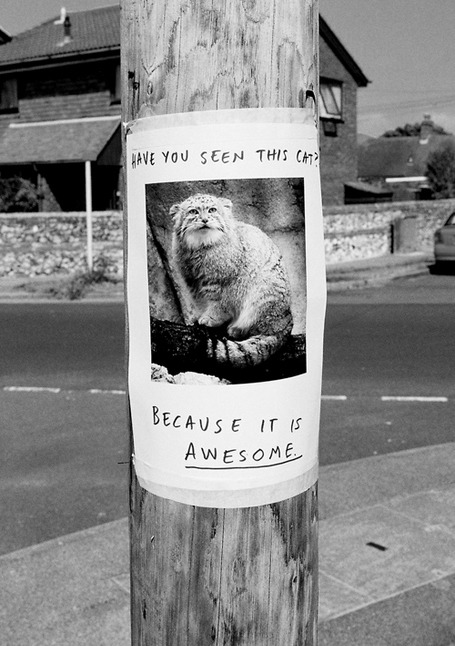I have read a grand total of eight books by C. S. Lewis from cover to cover. Seven of them were "The Chronicles of Narnia" series and the other was a very short book called "The Screwtape Letters". I love reading quotes by Lewis, but reading one of his books is, for me, akin to reading "Rocket Science: A Brief Overview" or "For the Love of Math". Not really something I can just skim through. I've had a copy of "The Joyful Christian" for probably a year, but I also have a pile of other books on my nightstand with bookmarks in all of them. I've been a bit intimidated at the thought of cracking open this book, but I ventured a peek yesterday. I was relieved to find that it is a compilation of writings, most of which are 2 to 3 pages long: C. S. Lewis for the short attention span or "Lewis: The Cliff Notes Edition". Oh yeah, I am all OVER that! Here an excerpt that Keller also quoted in "The Reason for God":
Atheism: My argument against God was that the universe seemed so cruel and unjust. But how had I got this idea of just and unjust? A man does not call a line crooked unless he has some idea of a straight line. What was I comparing this universe with when I called it unjust? If the whole show was bad and senseless from A to Z, so to speak, why did I, who was supposed to be part of the show, find myself in such violent reaction against it? A man feels wet when he falls into water, because man is not a water animal: a fish would not feel wet. Of course, I could have given up my idea of justice by saying it was nothing but a private idea of my own. But if I did that, then my argument against God collapsed too -- for the argument depended on saying that the world was really unjust, not simply that it did not happen to please my private fancies. Thus in the very act of trying to prove that God did not exist -- in other words, that the whole of reality was senseless -- I found I was forced to assume that one part of reality -- namely my idea of justice -- was full of sense. Consequently atheism turns out to be too simple. If the whole universe has no meaning, we should never have found out that it has no meaning: just as, if there were no light in the universe and therefore no creatures with eyes, we should never know it was dark. Dark would be without meaning.
I don't care who you are, that's some good stuff, there. And I'm pretty sure Lewis has his hand on his head in the above picture because his brain is hurting. Have an awesome Sunday; you're in my prayers.















17 comments:
Happy Sunday to you, too. My husband has a book of C.S. Lewis quotations. Outside of his Narnia series, that is the only book having to do with him I cracked open. I don't know why. May the great theologians intimidate me just a little.
The Narnia series would have been better if book two was more drawn out with them not being able to kill the witch off so easily. Then you could have them introducing high technology and magic and invading North to lay seige to the remnants of her forces. The series would have been more interesting if they had in more magic and less staticness regarding technology- I for one think it would have been interesting if he had bothered to go down that path first. Oh well- roads not traveled...
"My argument against God was that the universe seemed so cruel and unjust."
Argument from evil only applies to a God that cares. Kali and other Gods tend to be to callus for this to apply. Which is why atheists generally refer to evidentary arguments.
" But how had I got this idea of just and unjust? "
Instinct.
"A man does not call a line crooked unless he has some idea of a straight line. "
Actually we haven't had straight lines until laser light. Previous to that there were always imperfections- the same goes with circles. They just can't be seen with the naked eye.
"What was I comparing this universe with when I called it unjust?"
Human interactions of course.
"A man feels wet when he falls into water, because man is not a water animal: a fish would not feel wet."
Except we lived surrounded by air and we can feel it.
"Consequently atheism turns out to be too simple. If the whole universe has no meaning, we should never have found out that it has no meaning: just as, if there were no light in the universe and therefore no creatures with eyes, we should never know it was dark. Dark would be without meaning. "
The universe has no meaning. No more than my car does.
Unlike darkness, meaning is extrapolated from social interactions. It isn't a physical phenomena.
There are none so blind as those who will not see.
Blessed Sunday to you.
If you get the chance, you should read The Pilgrim's Regress.
Samuel,
Thanks for your comments. I have read a few blogs written by atheists. (I am assuming you are an atheist or agnostic -- if I'm mistaken, I apologize.) It seems that we are at an impasse. Every argument I have read that claims to disprove the existence of God can be countered with, from my perspective, an equally compelling argument that there is strong evidence that He does. I have yet to see any absolute proof to substanciate either claim. I choose to believe in God. You choose not to. I make no attempts to argue with atheists about the existence of a supernatural Creator of the universe. Rather than quoting scripture (which is often what many would expect a Christian to do), I will instead share an excerpt from a book (again) by Tim Keller entitled "The Reason for God: Belief in an Age of Skepticism"
"Because doubt and belief are each on the rise, our political and public discourse on matters of faith and morality has become deadlocked and deeply divided. The culture wars are taking a toll. Emotions and rhetoric are intense, even hysterical. Those who believe in God and Christianity are out to 'impose their beliefs on the rest of us' and 'turn back the clock' to a less enlightened time. Those who don't believe are 'enemies of the truth' and 'purveyors of relativism and permissiveness'. We don't reason with the other side; we only denouce it.
We have an impasse between the strengthening forces of doubt and belief, and this won't be solved simply by calling for more civility and dialogue. Arguments depend on having commonly held reference points that both sides can hold each other to. When fundamental understandings of reality conflict, it is hard to find anything to which to appeal."
I am not a Christian out of fear of spending an eternity in hell. I am a Christian because I believe the Gospel of Jesus Christ and choose to follow Him out of a deep sense of gratitude for what He did for me; for everyone.
I appreciate that you presented your point of view in a thoughtful and courteous way and would ask that other comments posted on this particular post would follow suit. (And while the thought of my praying for you is no doubt laughable from your perspective, I'm going to do it anyway.)
To Samuel, I agree with Katdish.
I absolutely appreciate the courteous manner in which you point out your reasons for disagreeing. You seem to have given it much thought.
To Katdish- Thanks for this post. Lots of food for thought and thank you for NOT deleting a differing opinion!
Dear Mr. Skinner,
I agree with Katdish and Sherri. I really have nothing profound to add to what they said. I can only say that I have been comforted by a loving God for as long as I can remember, and I hope the same for you one day.
Good stuff, Kat...hope you have a great Sunday and rest of the week.
First, katdish, in the circles I run in, I'm one of the few people who's read ANY of Lewis' books. So, when you said "grand total of 8," all I could think was "ooh, good for her!"
I really love Lewis, but I agree that he can be challenging. I find him clear though. Just so thought-provoking that I have to read every sentence twice.
And his Narnia books? I liked them okay. But not like I enjoyed Tolkien or even Rowling. I think maybe Lewis was a better teacher than storyteller.
Also? Loved your response to Samuel. My take on the impasse exactly. Probably why we Christians talk about our "testimony" so much: Sometimes the only real "evidence" we can present is our own story and choice to believe.
WV:
forgogi: what exhibitionist martial artists do on a hot day:
"Oh no! I no like work out with Bob when he forgogi. Let's go get sushi instead."
I guess my question is why do some athiets try so hard to disprove God? If they believe there is no God, then why does it matter? Is it because Christians profess so strongly that God exists? (And please do not take this as being snarky or whatever, it's just something I have always been curious about and maybe someone reading can answer?)
OK, so I'm going to have to get that book now. I LOVE C.S. Lewis but I've gotta psych myself up to read him because he makes my brain hurt a LOT!
Love this quote from him. I just can't comprehend how anyone could be athiest. My husband has a co-worker who is agnostic; a great guy, and brilliant enough to realize he can't prove there is no God, but he doesn't see enough proof enough that there is. I suppose that is where faith comes in. To me, all creation is proof of a divine Creator, and I just can't wrap my brain around believing otherwise.
After writing that, I have actually taken the time to read the above comments. I appreciate the courteous responses of all involved.
Annie -
I don't think you're being snarky at all. I wonder the same thing.
Steph - you should write a Word Verification coffee table book.
I have a confession. I read and re-read all the Chronicles of Narnia too many times to count when I was a kid and I will love them until I die. But I couldn't get through the whole Lord of the Rings Trilogy. I have tried to read them several times. I can read the Hobbit. I can read the first book. And then I get stalled on the second. Every time. So to me Lewis is a great story teller. I liked Screwtape Letters and the Great Divorce and Til We Have Faces. All good stories/allegories even though I just read them once and would probably flunk a quiz on them....Have I read much of "serious" C.S. Lewis? Nope. But maybe someday in the not too distant future.
Anyway, "For the Love of Math" made me laugh. It sounds like a book my brother the economics student would read. I have never even heard of the types of math he takes. Seriously, the titles of his classes make me want to cower under the furniture.
Finally, quotes don't really stick with me very well....I know, I know....you are the most quote-y person I know! I'm sorry! But THIS I really like:
"When fundamental understandings of reality conflict, it is hard to find anything to which to appeal."
Too true. Why do we(Christians) expect people who are not Christians to live out our reality all the time? Thanks for choosing to clearly state your beliefs without arguing an opposing view. :)
My understanding, from and atheist friend, is that some atheists believe we are weak minded people who have been brainwashed into believing there is a God, and they find that offensive. Kind of the same way we would feel about someone who had been taken in by a cult. Those of us outspoken about our beliefs are seen as spreading a kind of “mental illness”.
We also have to keep in mind that many atheists have been treated very badly by some “Christians”, and that no one was ever won to the Lord by being beaten over the head with a Bible.
It’s hard for me to imagine not believing in God too. It seems it would take much more in the way of faith to be an atheist.
shawn,
Exactly. Well said.
beth-
THANK YOU for acknowledging the math comment: The fabulous centerpiece from which this entire post was build upon. (Okay, not really, but still...)
"For the Love of Math"?...I SUCK at math?.....Hel-looo? (tap, tap, tap) Is this mic on? Anyone? (lonely cricket sounds)
Whatever...at least Beth got it.
How you feel about C.S. Lewis is how I feel about John Piper. Awesome, but tough to read.
Angela,
I've only seen Piper is snippets on youtube, and of course, that awesome prosperity gospel piece. I'd love to read one of his books. Any recommendations?
What Lewis ought to have thought and said is that all of existence has no inherent meaning. It, of course, can have meaning to those who are capable of giving meaning to it. The question is, without some consciousness to form meaning in what exists, does existence have meaning along? Not likely. One always has to ask, "Meaningful to whom?"
If there is no "who", there is no meaning. Meaning is another way of saying "value". Only that which lives can value and only that which lives can create meaning.
Without life such as ourselves - but not limited to ourselves - the rocks are simply rocks. In fact, that are what they are and with no name at all.
There is meaning in the universe, in the least, because WE assign meaning to it relative to ourselves. Certainly, other species on earth provide their own meanings to things. There is no reason to believe life elsewhere in the universe - assuming it exists - cannot do the same.
I believe Lewis became lost in his own attempts to make sense of things and wound up an intellectual mess.
Post a Comment